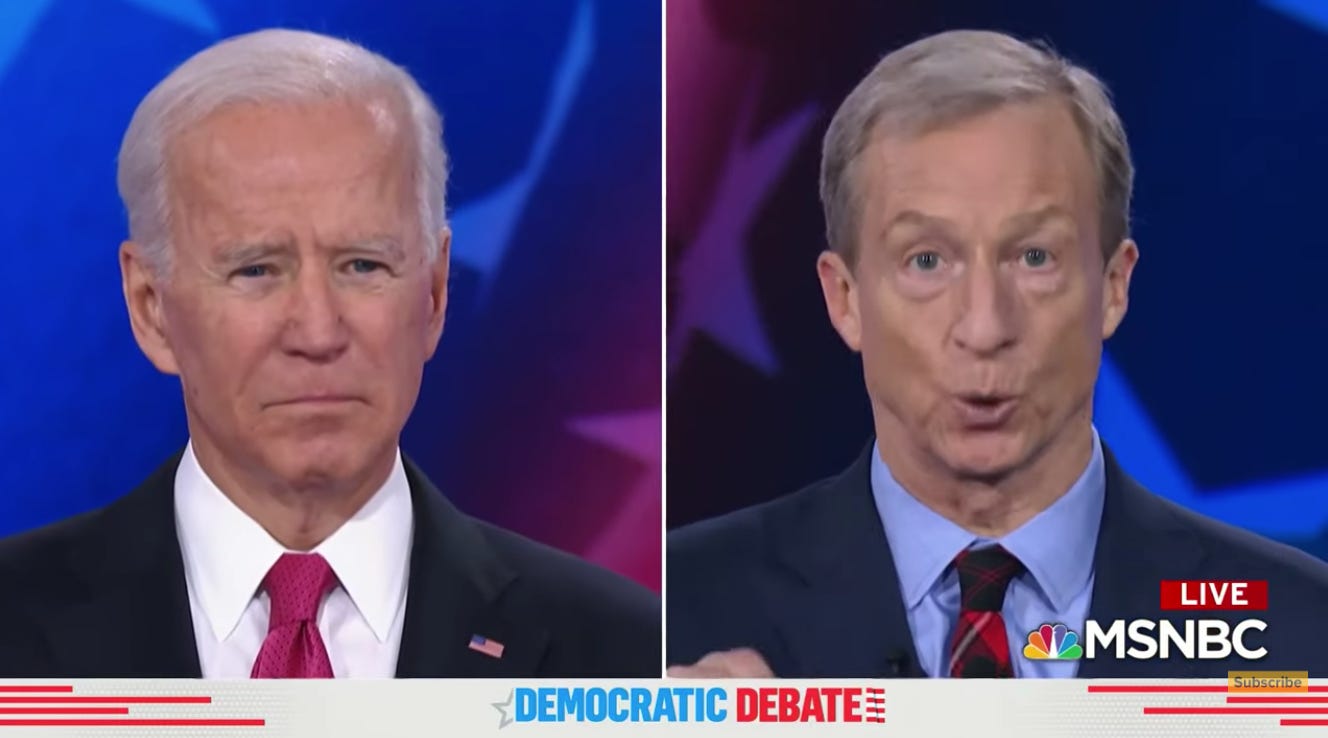"You're asking how hard I will push. Really hard."
Tom Steyer talks with HEATED about his new role as Joe Biden's "climate engagement advisory council" chairman.

In November of last year, California billionaire and climate activist Tom Steyer stood on a debate stage in front of a televised audience of more than 6 million people, and name-checked Joe Biden for not being aggressive enough on climate change.
“I’m the only person on this stage who will say that climate change is the number one priority for me,” he sa…


